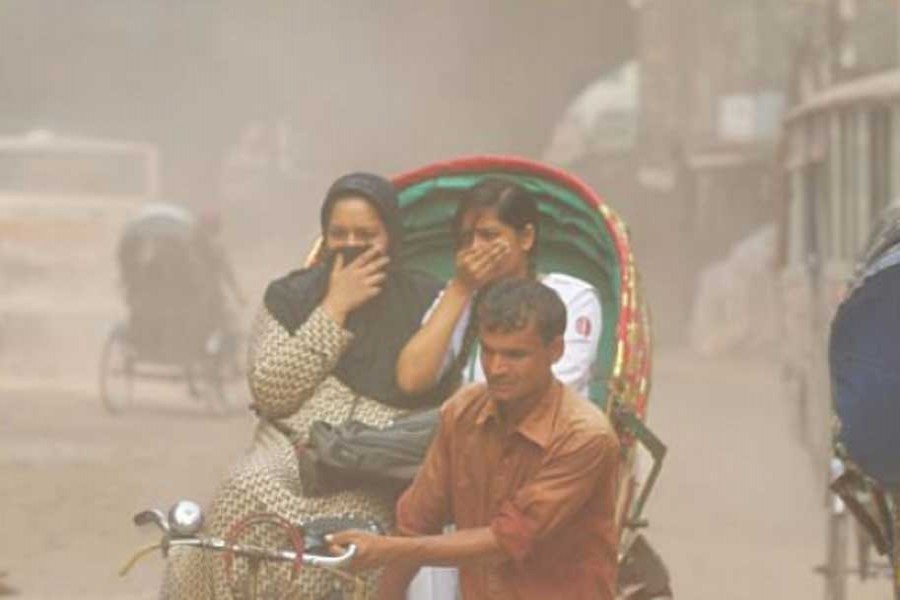Air pollution is one of growing environmental hazards in Bangladesh. As such the country has now been grappling with air pollution. Exposed to various diseases and financial losses caused by air pollution, the citizens, especially in major cities, continue to breathe in the most polluted air in the world. It's a situation which prompted national dailies to write editorials repeatedly on the matter.
Dhaka, the sprawling overcrowded mega-city, has turned into an ecologically critical area. The High Court, at one point, observed that it was time to declare Dhaka as an 'ecologically critical area' due to widespread pollution, and issued a nine-point directive to address air pollution.
As construction of various large infrastructures increased between 2016 and 2019, Dhaka's air quality worsened simultaneously, the environment minister told parliament on February 16. The minister said that the factors responsible for air pollution in Dhaka city are brick kilns, smoke from vehicles, construction of different infrastructures and road digging, civic wastes, and biomass etcetera.
The United Nations (UN) says that clean air is a human right. A report in 2018 noted that due to air pollution Bangladeshis lose about two years of their longevity on average. Environmental activists expressed views that most people are unaware of the effects of air pollution on human health. They also emphasised raising awareness among the people. Some distinguished environment specialists blamed apathy and nonchalance of the authorities concerned for the air pollution peril. They said the government has a big project to check air pollution under which footpaths and foot-over bridges are constructed. But it is not understandable as to what are the relations between air pollution, foot-paths and foot-over bridges.
A World Bank (WB) repot in 2016 said air pollution has emerged as the deadliest form of pollution and fourth leading risk factor worldwide for premature deaths. The World Health Organisation (WHO) estimates show that 600,000 children died in 2016 from acute respiratory infection caused by air pollution. The report noted that air pollution also impacts neurodevelopment and cognitive ability and can trigger asthma, and childhood cancer.
At least 123,000 people died in 2017 in Bangladesh due to indoor and outdoor air pollution. The authorities concerned have still been foot-dragging over the issue although at least four major health risks, as mentioned above, plague the cities and other parts of the country.
It augurs well, however, as the minister said in parliament that the government has taken various measures including enacting the Clean Air Act-2020 for effectively controlling air pollution at large as part of a long-term plan. Improvement in air quality across the country requires shutting down of illegal brick kilns, stopping unfit vehicles from plying, checking dust pollution during development works, and taking projects for afforestation.
To clean city roads all over the country appropriate, adequate and sufficient measures need to be taken immediately. These may include setting up of high-speed water sprinklers at different hotspots in the capital and elsewhere, dust suckers and introduce vacuum sweeping trucks instead of manual brooms. It is surely conceivable that controlling air pollution is an uphill task but it must be waged with full vigour right now. The issue brooks no delay.
Sarwar Md. Saifullah Khaled is a retired Professor of Economics and Vice Principal at Cumilla Women's Government College, Cumilla.


